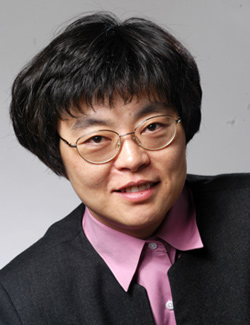We must recommit to the spirit of skeptical inquiry—of asking if we have all the data to see the full picture.
Last month, I wrote about the Trust Science pledge (https://trust-science.org)—a campaign spearheaded by OSA, the IEEE Photonics Society and SPIE to encourage all to express their support for evidence-based science as one key to a better world. The campaign was launched as part of the celebration of the International Day of Light on 16 May. Although this date has passed, I hope you will still pledge your support.
Notice that the pledge specifically mentions evidence-based science, an acknowledgment that progress rests on obtaining and drawing conclusions based on the best possible data. As scientists and engineers we know this both intuitively and intellectually; respect for data is bred in our bones. Yet particularly amid the social, political and economic dislocations of recent years, scientists as well as the general public can all too easily fall prey to drawing quick conclusions based on limited data. This is a hazard that I believe we must all take seriously.
As everyone knows, one important casualty of the COVID-19 pandemic has been face-to-face contact with others—professional colleagues, friends and family. Such personal interactions are an important way to gain access to new perspectives, and to put our own assumptions to the test. In the absence of such face-to-face interactions, even with the best intentions, we may allow our sources of news and information to become limited to ones reflecting our own biases or points of view. And those limited data can drive us to the wrong outcomes.
Sometimes those outcomes can be tragic. The hate crimes against African-Americans, Asian-Americans and others that have recently been reported in the United States flow, at least in part, from the actions of individuals who willfully limit the data and perspectives they are exposed to. The same can be said of the biases that over the decades have been ingrained into our institutions and systems—including scientific ones.
Signing an online pledge to trust evidence-based science won’t cure these and other social ills, of course. But it’s a worthwhile and necessary reminder that we must recommit to the spirit of skeptical inquiry—of asking if we have all the data to see the full picture.
This lies particularly at the center of science and engineering. As my own career has evolved from hours at the lab bench to a role as a professor and supervisor, I have inevitably spent less time in hands-on experimental science. And I try to remember to mimic my professors and supervisors who were so wise, and who always came to the lab to see my setup when I reported a worthwhile result! They didn’t just look at my viewgraphs—they would actually put their hands between the laser and detector, to convince themselves that the signal was real.
This spirit will be in my mind when I attend—via Zoom—this month’s OFC Conference. As always, the meeting will offer a window into the best of the science that has enabled the communications that we take for granted today, and that has helped the world weather the pandemic. But the meeting will also exemplify what can be accomplished—in science, for society and for ourselves—when we remain open to a broad scope of information sources, and insist on looking at all of the data.
—Constance Chang-Hasnain,
OSA President

